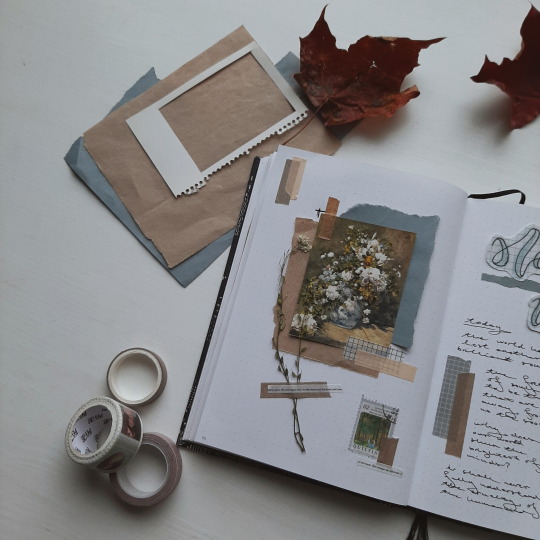Studyblr of Vivi & Rebekka Germany/Berlin class of 2018 feel free to message us anytime! ♡
Don't wanna be here? Send us removal request.
Text
My university tips
Read your syllabus! Trust me, everything you need to know about the class is in the syllabus including midterm and exam dates (most times)
Make sure you know where your classes are. The last thing you want is to get lost in the 10 minute slot in between your lectures (been there)
Buy textbooks from upper years! Trust me you save sooo much money
Do not impulse buy stuff you don’t need
Write stuff down! Your brain retains things more when you physically write it down. At least write down important concepts if you don’t want to rewrite things
ASK QUESTIONS! Whether it be to the prof or the TA it is always good to ask if you need clarifications or have a question
Reading ahead is always a good thing, if you have free time go ahead and read, you never know if you will suddenly be swamped with work
Reading your notes or cue cards on the bus is always a good way to get in some study time
Do your readings. Trust me you will regret not doing them
Find a good study method/note taking method that works for YOU! Not something you saw on tumblr that was aesthetically pleasing and worked for someone else. Pretty notes will not get you good grades
This isn’t high school. A routine and certain habits that worked for you then will not work for you now. Adapt your new routine and habits to what will help you succeed and do your best whilst staying healthy
Bring your chargers (phone, laptop) with you everywhere!!
The library and other study spaces are your best friend
STAY HYDRATED
Mornings are so productive trust me. Just make sure you go to bed at a reasonable time to make up for waking up early
MEAL PREP!!!!! Trust me, it does take time yes but it will save you from spending money and gaining unwanted pounds
Lastly, no degree is better than another get that gross mentality out of your head
398 notes
·
View notes
Photo

A lot of you have been asking me what’s on my iPad and how I use my iPad for medical school and studying in general. So, I made a YouTube video answering these questions!! Editing and filming was a lot of fun, so I might just start uploading videos now! Click here to check it out!
1K notes
·
View notes
Text
The Best Time To Learn A Language Is Now
Spending so much time at home, without the routine we’ve known, away from our friends, can be incredibly daunting and - let’s face it - boring sometimes. Something I’ve found really helped me is to focus on how I can spend this new-found time wisely while also distracting myself from spiralling thoughts. One of the best ways to do that is to do some of the things one has always wanted to: finishing that unread pile of books, setting up a workout routine, cooking, or even learning the language you’ve always wanted to!
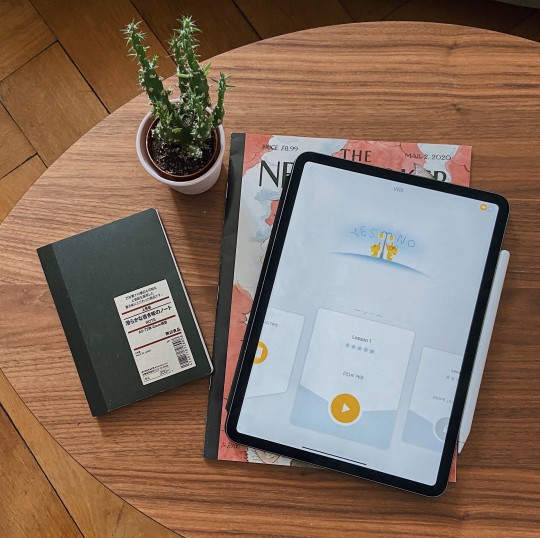
That’s why I’m very happy to be partnering up with LingoDeer for this post to introduce their special event, with which you can unlock everything on their website for 1 month for just 1$ using the code REMOTE.
But what exactly is LingoDeer?
LingoDeer has been one of my personal favourite methods for self-language study pretty much since their conception. Originally focused on Asian languages, they now teach not only Korean, Japanese, Chinese and Vietnamese, but are also offering Spanish, French, German, Portuguese, Italian and Russian. Always wanted to read Dostoyewskij or Sartre in their original languages? Spend a holiday using only the language of the country instead of relying on English? Watch Korean dramas or the SKAM remakes in the original without subtitles? LingoDeer is the perfect tool to start with that goal. They offer 200+ lessons crafted by experts for absolute beginners, intermediates, as well as special courses focused on teaching native, authentic speaking patterns to make you sound even more fluent!
Everything from excellent grammar explanations to vocabulary lists to reading, speaking and listening exercises is covered to make sure you advance in no time. Questions you got wrong, or areas where you need to improve, can be targeted with the Target Sessions - and they offer vocabulary flashcards and grammatical concept cards as well!
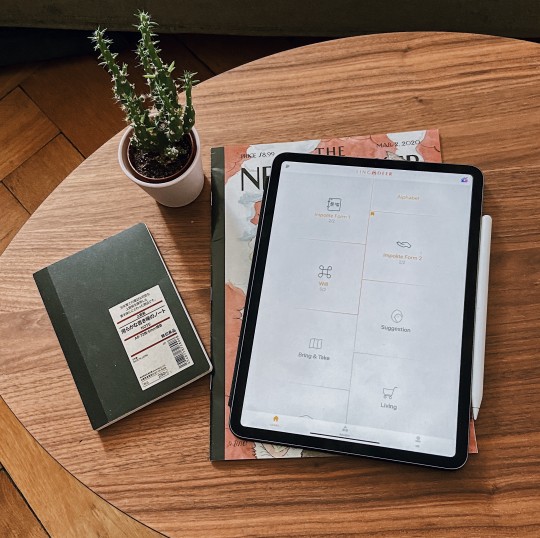
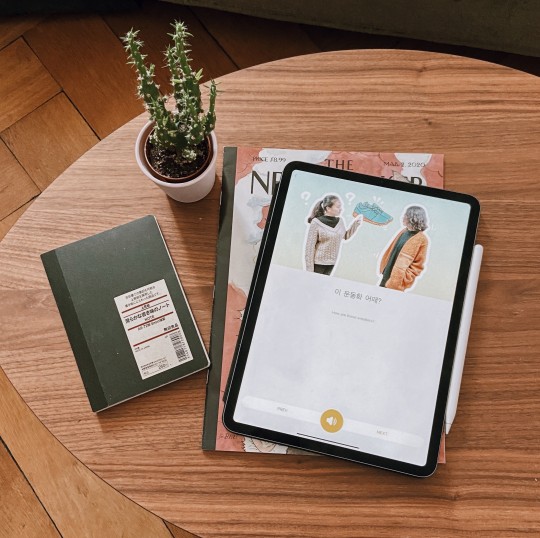
Using the code “REMOTE” on their website you can unlock everything in LingoDeer and learn as many languages as you’d like for 30 days for 1$. This offer will be valid until March 21!
I’d love to see all of you spend this time on yourself, your important relationships, as well as on your mind. Future you, conversing with natives and being presented opportunities you’d never thought possible, will thank you for it!
As the proverb goes: “The best time to plant a tree was 20 years ago. The second-best time is now.”
Also, be sure to check our their Instagram post, where they’re giving away a free one-year subscription!
476 notes
·
View notes
Text

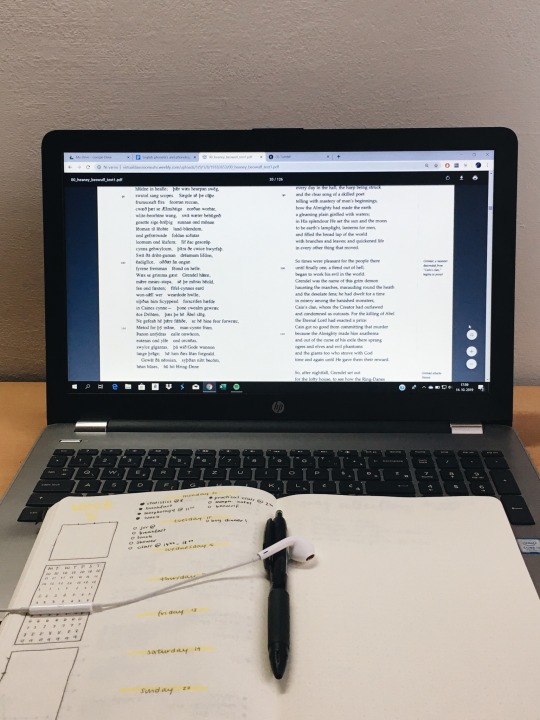
today's outfit & i started reading beowulf for my medieval english lit class
658 notes
·
View notes
Text


"Forgive me, for all the things I did but mostly for the ones I did not"
- Donna Tartt, The Secret History
1K notes
·
View notes
Text



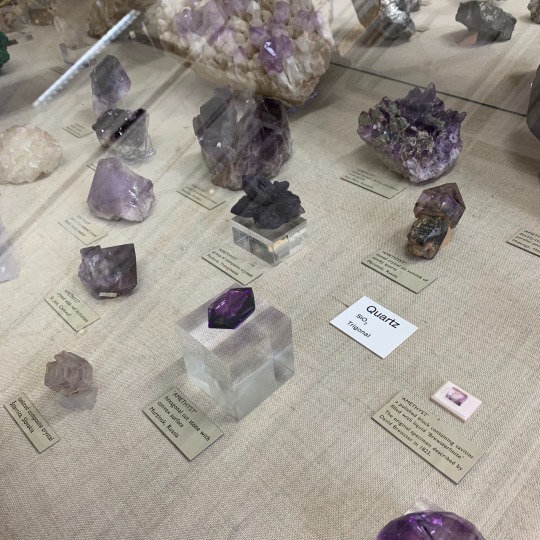
14.10.19 / date w myself in south kensington.
622 notes
·
View notes
Text
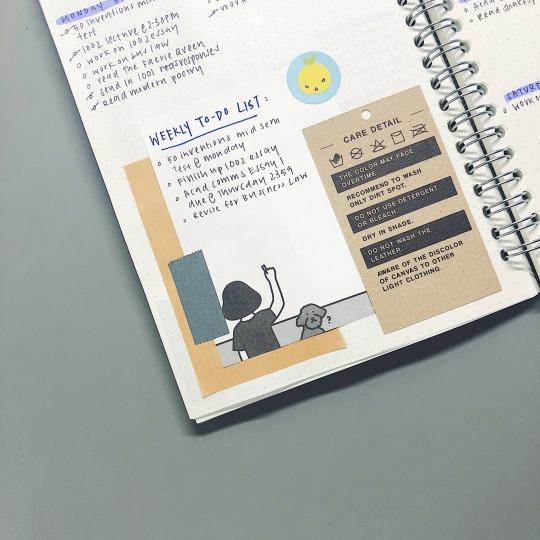

praying for this week to be a productive one
912 notes
·
View notes
Text
reminder that your grades aren’t everything and don’t define you as a person!! it’s ok if you fail a test, or three (or all). they’re not a measure of how wonderful u are!
1K notes
·
View notes
Text

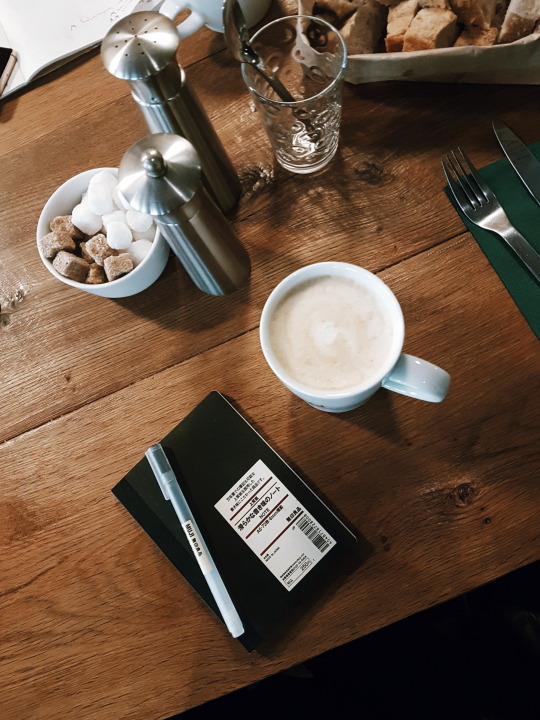
spending some amazing days in Prague with @empyrealstudy
4K notes
·
View notes
Text
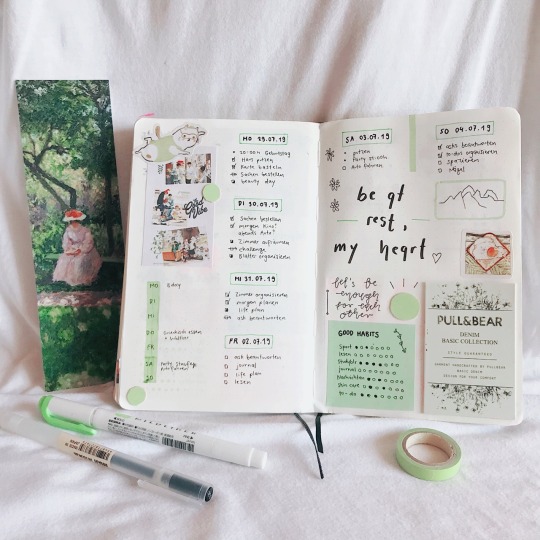


friday, 9th august | ⛅️
what’s up my frens
trying to enjoy my summer break as much as possible by balancing productivity with relaxing
problem: i want to do so many things and get overwhelmed
i’m gonna eat vanilla yogurt now
🎧 i been born again - brockhampton
3K notes
·
View notes
Text
reblog for good things to happen to you
the universe will listen
563K notes
·
View notes
Text
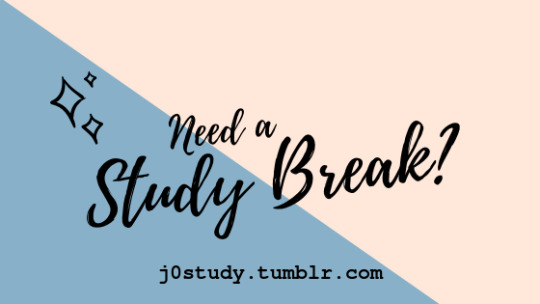
Stretch your body
Exercise
Meditate
Go outside
Grab a snack or make yourself a nice meal
Make some tea or coffee
Watch an episode of a series
Watch a movie
Take deep breaths and close your eyes for a while
Work on something else
Clean/tidy up
Change your location
Do something fun (like playing a game or talk with someone)
2K notes
·
View notes
Text
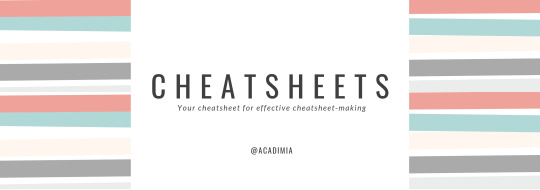
After making a grand total of 11 cheatsheets since starting university less than a year ago (I know, my uni is weird), I wanted to share some of my tips and tricks for making the most effective cheatsheet for your needs! They’re a hassle to make, but depending on how you make yours, it could either be an incredibly useful resource or just an extra sheet of paper on your desk.
(By “cheatsheet”, I mean a typically printer paper-sized memory aid, usually handwritten, that is allowed to be brought into an exam.)

1. You don’t need to write small, nor do you need to write a lot.
Some people go out of their way to buy 0.1mm pens to cram everything they can onto a cheatsheet. But okay, hear me out: unless you plan on using your cheatsheet to study (more on this later), what is the point of writing as much as you can? It is super difficult to find the exact piece of information that you need in the stressful environment of an exam, especially when you’ve written in the equivalent of size 4 font and your page is cluttered with information you definitely know . And honestly, for most exams, it’s a waste of time trying to look at your cheatsheet. Just put down whatever you’ll definitely need; the rest will only slow you down or overwhelm you.
2. Use colours, or at least find some way to keep it organized.
Once again, you need to spend as little time as possible looking at your cheatsheet in an exam. If the exam allows cheatsheets, the class probably has something else to up the difficulty level of exams. In my experience, it’s usually either application questions or a time crunch, sometimes both. So, make your cheatsheet efficient. Colour-code it so you know what to look for in order to find any given piece of information. Find some sort of format, so that you also know where exactly to look.
3. Don’t wait until last minute to make it. If it comes to that point, just put down the major points and sleep.
There are so many reasons why you shouldn’t do this. Just trust me, my lowest exam marks are from exams where I made a cheatsheet the night before. You shouldn’t be staying up the night before your exam. Copying the textbook onto a sheet of printer paper isn’t effective studying. Most importantly, your cheatsheet becomes so much more effective when you’ve actually done practice exams with it. Or else, how would you know how well it actually functions and what else you should add?
4. It doesn’t need to be perfect.
Please don’t spend too much time on your cheatsheet. Obviously, interpret this advice based on practice exams and the scope of whatever course you’re taking, but don’t get to a point where you’re relying on your “perfect” cheatsheet to pass the exam. Instead, spend your time studying the material and question formats so that you almost don’t need your cheatsheet. No matter how informative or detailed your cheatsheet is, it won’t matter if you don’t have time to use it during the exam, or if you haven’t done enough practice so you don’t know how to format the cheatsheet’s information.
5. Don’t worry about what everyone else is doing.
I think this goes without saying for practically anything, really. Just do you. If the prof says you’re allowed a single piece of printer paper, front and back, it doesn’t mean that you need to fill that. Nor does it mean that you should be intimidated when you walk into the exam and see that you’re the only person who hasn’t filled up your cheatsheet completely. Do whatever you need to succeed. If spending a few extra hours cramming information onto your cheatsheet won’t help you, then don’t do that. If it will, then don’t let me and my opinions stop you.

1. For the stuff that you actually don’t know and isn’t worthwhile to memorize
This is pretty obvious, but you should prioritize the stuff that you actually don’t know and is too difficult to memorize. For example, the 20 amino acids for Biology.
2. Diagram compilation
Personally, I think that the most useful thing you can do with your cheatsheet is to add diagrams and charts. They are the easiest thing to find on your cheatsheet. Also, diagrams are able to sum up a whole list of details, so you don’t need to worry about missing something. It is always useful to refer to your diagrams for inspiration!
3. Checklist
What are the three points you need to include to describe a histogram? What steps does the prof want you to do to show autosomal dominance? If you are someone who often loses marks because of missing details or the way you format your answers, your cheatsheet can function as a checklist. Write down exactly what you need to address to get full marks on certain types of questions.
4. Personalized formula sheet
If you are anything like me (ie. I am so afraid of Math that I chose not to major in Biochemistry just so I don’t have to do Calc III), then writing out some formulas in the way that you like them written might be useful, even if you are given a formula sheet. It’s a comfort thing.
5. Study guide
As a heads up, this is the only situation where I would condone writing as much as possible on your formula sheet. If you’re the type of person who studies by copying out your notes (ie. you memorize things by writing them out), then you might as well kill two birds with one stone and just copy your notes onto your cheatsheet. But, then again, your cheatsheet will probably be less functional during the exam, so do this at your own discretion.

Here are two of my own cheatsheets, to illustrate some of my points. The first one is for Biology, the second one is for Statistics.
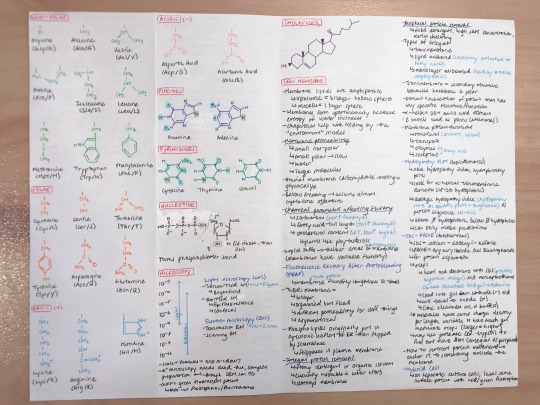
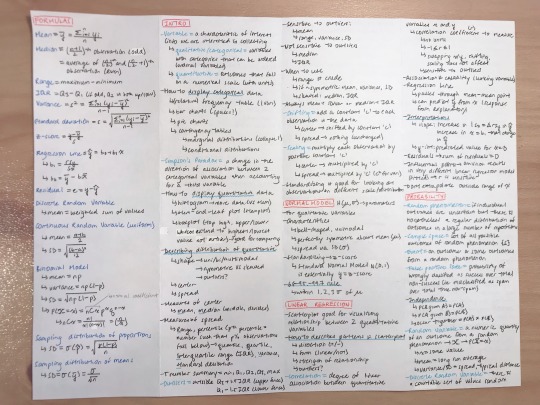
I don’t keep a consistent colour code, but generally, red is for categories or units, blue is for definitions or important terms, and blue underline is for things I commonly forget or refer to (ie. the 4 factors affecting membrane fluidity). The units follow the order that we learned them in class. Although I tend to write small and there is a lot more information than strictly necessary, I can easily find anything I’m looking for.
Here’s the bottom line: do whatever is the most useful for you!! These are just a few things that have worked for me and some people around me, but do whatever will help you succeed.
Happy studying, everyone!
1K notes
·
View notes
Text
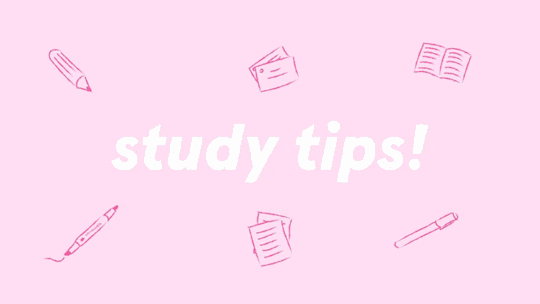
Practice mindfulness! This will increase your motivation and help to decrease your stress.
Create a to-do list every day, aim to get 2-3 big tasks done a day to remain productive.
Remove all distractions when trying to work. Remove phones, laptops, tv, children/siblings, etc, from the room you are studying in (unless you genuinely need them to study).
STOP MULTITASKING! Studies have shown that you actually waste time by switching between tasks (a loss of up to 40% of your time). Multitasking is also linked to poor mental health. Take your time on one task at a time and get them done quicker and more efficiently.
Have a de-stress day at least 1-2 times a week. This will ensure you aren’t stressing yourself out and giving yourself student burnout. It will also help you with motivation and efficiency when studying.
Keep a diary! Keeping your time organised, eliminates unnecessary stress and helps you to get things done.
Keep your study area clean. Less physical clutter translates to less mental clutter.
Study every day. This will ensure continuous learning and solidifying information in your brain (if you’re studying correctly in the first place).
Figure out your learning style. There are so many learning styles. Figuring out yours will help you study more efficiently and learn concepts faster. I am more of a visual learner, so I really benefit from diagrams and visually interesting videos.
Don’t forget to take breaks. I try to enforce 3 hours of solid study time a day, broken up by 5-10 minute breaks, every 20-30 minutes. Breaks give your brain time to absorb new knowledge, as well as to relax and not get too worn out.
No last-minute study! Give yourself time to learn and actually understand concepts. Last-minute study just leads to stress and can also cause you to forget previously learned information.
Flow charts and diagrams are a lifesaver! When done correctly they can help solidify information, make connections between topics, and perfectly summarise your content.
Try teaching others. Learning from teaching is so helpful, it solidifies information in your brain, whilst also helping others.
These are just some study tips that help me. There are a lot more to add but these are just the main ones I live by lol! Feel free to add your own in the comments or when reblogging.
Are there any study tips that I should check out or add to my own routine? I’m always down to learn more study tips :) <3
2K notes
·
View notes
Text
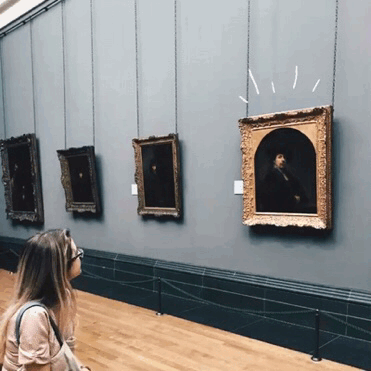

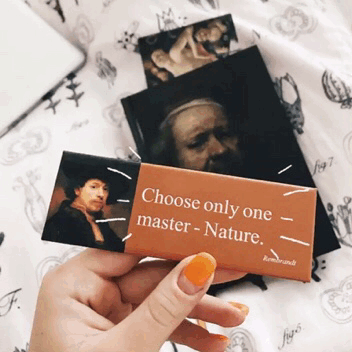
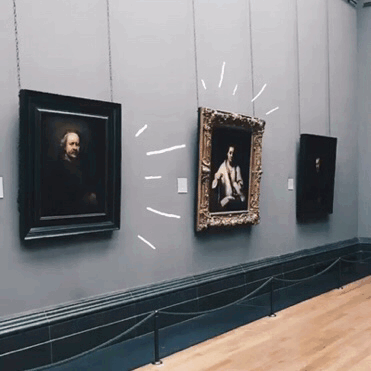
Today , I visited just two wings at NG , including Rembrandt’s paintings and the wing with Sandro Botticelli. Both left me breathless,made me crying a little bit , what ability we have to see the originals so close,study them,look at them and beauty of those paintings..” Favourite thing I brought from my visit is a Rembrandt’s quote and superb impression..
“ Choose only one master - Nature “
2K notes
·
View notes

